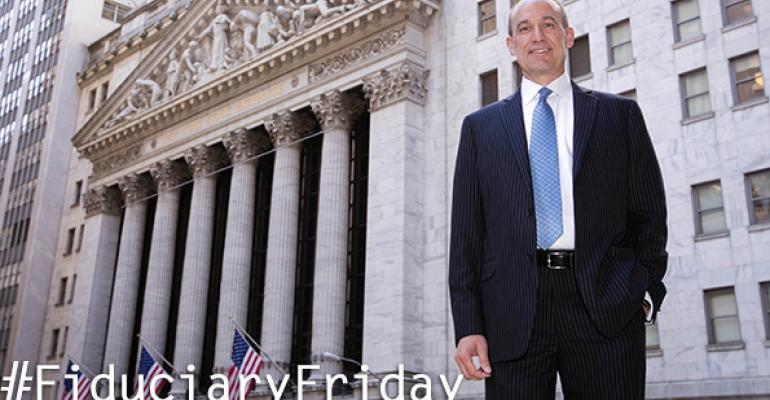The Investment Advisers Act has now been with us for 75 years, which is also how long the industry has battled over what constitutes advice (and who can offer it.)
The U.S. stock market crash of 1929 and the subsequent Great Depression triggered a flurry of legislation from Congress. It all started with passage of the Securities Act of 1933, regulating the issuance of securities. Following that were the Securities Exchange Act of 1934, regulating securities brokerage activities; the Investment Company Act of 1940 regulating mutual funds; and finally the Investment Advisers Act of 1940 (the Advisers Act), which sought to distinguish investment advisory activities from securities brokerage activities.
Embedded in the Advisers Act was a key exemption: brokers did not have to register as investment advisers with the SEC as long as any advice they provided was “solely incidental” to their role as securities brokers. Therein lies the crux of the debates we’ve been having for years about brokers providing advice to investors, and how they are regulated, including the standard of care they owe those investors.
A 1963 Supreme Court ruling (SEC v. Capital Gains) established the fiduciary standard that investment advisers are required to abide by under the Advisers Act. Brokers have no such requirement, as long as their advice is “solely incidental” to their role as brokers.
Technology has re-shaped the financial industry, as it has with so many industries. Today, processing securities transactions is largely automated. Online brokers will do this work for less than a 10 dollar bill. How does a full-service broker justify charging much more? By adding value through advice to his/her investor customers. The difference between a discount broker and a full-service broker is in the advice.
So we know that a full-service broker’s primary – not to be confused with incidental – value add is in advice, not in processing the trade. Test this hypothesis: ask the next person you meet who uses the services of a full-service broker, what do they get for their money? You might get a quizzical look, or even a retort to the effect of, “they don’t charge me anything!”… which is a whole other problem. Investment advisers are required by law to disclose their compensation and to minimize, manage, and disclose their conflicts of interest. Brokers can disclose this information in small print in a blizzard of multiple documents, which very few investors read. But the answer to your question will be “advice”.
Why have brokers been allowed to evolve their services more toward advice, without registering under the Advisers Act, and in direct violation of that legislation? Because the SEC has let them. And don’t ask me why; it’s an enduring mystery, and one at the very root of consumer confusion and the industry debate today. We seem to have returned to the 1920s where brokerage and investment advice were not distinguished.
Brokers have, since 2009, advocated for a uniform fiduciary standard to be applied to their activities as well as those of investment advisers. This would mean the end of the Advisers Act and the beginning of a new era with a new standard and-- make no mistake-- a new, “harmonized” set of rules for brokers and advisers.
Is this what’s best for investors? That’s a good question to ponder as the industry debate rages on. But if the brokers are sincere in their support for a fiduciary standard, all they have to do is register as investment advisers under the Advisers Act. No act of Congress nor regulatory fiat necessary. Consumers finally would have a clearer understanding of the distinction, and would enjoy the protections that have endured under the Advisers Act for 75 years.
Skip Schweiss is managing director of advisor advocacy and industry affairs for TD Ameritrade Institutional.





